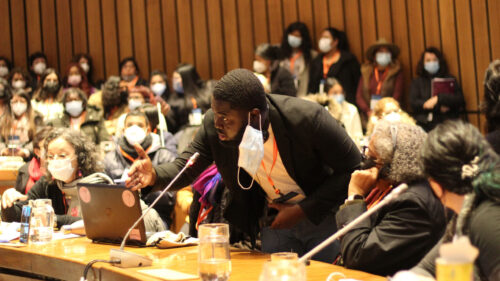
News
The anti-rights Geneva Consensus Declaration loses support in Latin America
Brazil and Colombia announced their intention to withdraw from the Geneva Consensus Declaration last month, in a move hailed as a rejection of policies aimed at restricting the rights of women, girls, and gender-diverse people to make decisions related to their sexual and reproductive health.
Initiated by the United States under the Trump Administration and adopted in October 2020 in Washington D.C., the Geneva Consensus Declaration on Promoting Women’s Health and Strengthening the Family seeks to undermine sexual and reproductive health and rights—particularly access to safe abortion care services—in countries worldwide.
The declaration represents an effort of the global anti-rights movement to misrepresent internationally agreed commitments that protect sexual and reproductive health and rights. By distorting the state’s obligations to the health and well-being of women, the agreement’s purpose is to subvert the foundations of the global framework for the protection of human rights and multilateralism and contravene international women’s rights standards on health.
The so-called a “consensus” is not the product of any negotiation. It was never discussed in any United Nations forum. Consequently, it is a document without legitimacy that does not reflect any global agreement and represents the views of the few dozen signatories only.
Three Latin American and Caribbean nations—Brazil, Haiti, and Paraguay—were among the original signatories to the declaration. Months later, Colombia and Guatemala joined them. Many signatories came from countries in the Global south, but two European countries (Hungary and Poland) signed on to the declaration, as well.
The elections last year in Colombia and Brazil ushered in progressive governments whose first actions included withdrawing their participation in the declaration. The Biden administration had previously withdrawn from the agreement in 2021. But conservative members of the U.S. Congress continue to show support for it. Though the United States is no longer officially a member of the group of countries that are officially signed on to the declaration, there is high-level political engagement that could lead to joining the group again if Republicans win the U.S. presidency again a future election.
During their first months in office, the new governments of Brazil and Colombia have already begun to implement measures that align with international SRHR commitments by eliminating barriers for abortion care services.
In Colombia, officials have made changes to the health system to make access to abortion care—which the country’s supreme court decriminalized in a historic ruling last year—a reality.
Health authorities in Brazil have to sought ensure access to legal abortion under the rape exception, which is legal in the country but experienced repeated attacks under the previous administration led by Jair Bolsonaro.
The move by Brazil and Colombia to withdraw from the Geneva Consensus Declaration is a welcome victory for abortion rights activists in the wake of the U.S. Supreme Court decision to overturn Roe v. Wade last year. Activists interpret the declining support of the declaration as a sign of countries underlying commitment to upholding women’s rights.
While the Geneva Consensus Declaration is not a legitimate international agreement, the world does have real consensus on commitments to SRHR, such as those made at the International Conference on Population and Development (ICPD), the Beijing Declaration and Platform for Action adopted by the Fourth World Conference on Women, the outcome of the 5-year reviews of those two conferences, and the Convention on the Elimination of All Forms of Discrimination against Women (CEDAW).
These international agreements constitute the global policy and normative framework for the promotion and protection of women’s and girls’ rights, including SRHR. Fòs Feminista and its partners work tirelessly to expand the recognition of rights and ensure that those commitments made by governments are upheld and fully implemented. Through its advocacy work, our Alliance also seeks to prevent the misrepresentation of global agreements and documents that, like the Geneva Declaration, aim to undermine the achievements of feminist movements.